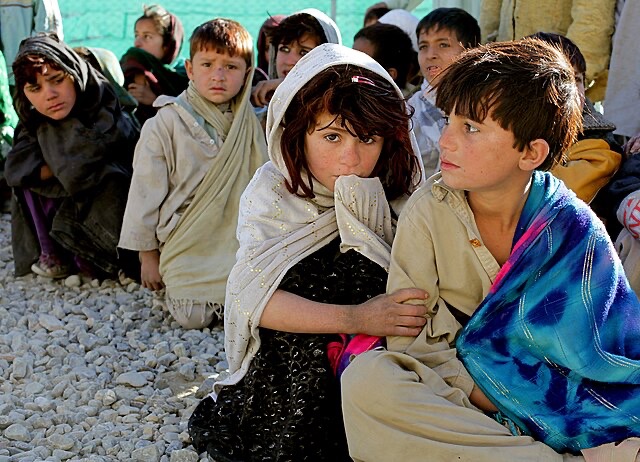Thousands more Afghans than initially expected could be resettled in Britain following a catastrophic Ministry of Defence data breach that exposed personal details of those who helped UK forces, with costs potentially ballooning to more than £2 billion, the National Audit Office has revealed.
The government spending watchdog said up to 27,278 people could ultimately be resettled from Afghanistan – nearly 4,000 more than projected – whilst criticising the MoD for failing to provide “sufficient evidence” to verify its £850 million cost estimate for the secret relocation programme.
A superinjunction that prevented public disclosure of the February 2022 breach was lifted in July, revealing how an unnamed Royal Marine accidentally emailed a spreadsheet containing personal information of 18,714 Afghan asylum seekers to contacts outside secure government systems.
Taliban ‘Kill List’ Warning
The Taliban warned in July that it would use the leaked data to hunt down thousands of Afghan refugees who had worked with British forces, with a senior official claiming the militant group obtained the list “during the very first days when it was leaked.”
“We got the list from the internet during the very first days when it was leaked,” the Taliban official told The Telegraph. “A special unit has been launched to find them and make sure they do not work with Britain.”
The official added: “We’ve been calling and visiting their family members to track them down.” He claimed that “senior figures in the establishment in Kandahar are pressuring officials in Kabul to find them” as they believe these individuals continue working with Britain.
Defence Secretary John Healey revealed in Parliament that the breach contained “personal information associated to 18,714 Afghan who had applied to either the Ex Gratia or ARAP scheme on or before 7 January 2022”, including names, contact details and family member information.
Secret £850 Million Resettlement Scheme
The MoD established the covert Afghanistan Response Route (ARR) in April 2024 specifically for those endangered by the breach who were ineligible for other schemes. By July 2025, the MoD estimated it had already spent £400 million, with the remainder to be incurred over the coming years.
However, the NAO report published on Wednesday stated: “The MoD is not able to determine exactly what it has spent on resettling people through the ARR scheme because it did not separately identify the costs in its accounting system.”
Sir Geoffrey Clifton-Brown, Conservative MP and chair of the Commons public accounts committee, said: “Confusion still remains over the reported £850 million historic and future costs relating to the breach, with the MoD unable to provide sufficient assurance over their numbers.
True Scale of Potential Costs
The NAO revealed that departmental spending between 2021-22 and 2024-25 totalled £563 million, with overall costs forecast to exceed £2 billion by 2029. A further £1.5 billion is expected to be spent between now and March 2029.
Whilst the MoD quoted £850 million for the ARR scheme alone, this figure excludes at least £2.5 million in legal costs and compensation claims. The watchdog noted the government failed to account for affected Afghans brought to Britain under other resettlement programmes.
“At the time of publication, the MoD had not provided us with sufficient evidence to give us confidence regarding the completeness and accuracy of these estimates,” the NAO stated.
Lives at Risk From Data Exposure
Court documents revealed the breach potentially endangered up to 100,000 people when family members are included. The leak occurred when a defence official mistakenly believed they were sending details of 150 applicants but actually transmitted a hidden spreadsheet tab containing thousands of records.
The data also included personal details of MPs, MI6 agents and special forces personnel who had endorsed Afghan applications, defence sources confirmed.
By August 2023, when excerpts appeared on Facebook, the MoD sought an unprecedented “contra mundum” superinjunction – binding “against the world” – to suppress the breach’s existence entirely.
Government Response and Scheme Closure
Healey apologised in July, calling it “a serious data incident [that] should never have happened”, whilst announcing the ARR’s closure to new applicants. However, he confirmed the government would honour approximately 600 existing invitations.
Around 4,500 people – made up of 900 Arap applicants and approximately 3,600 family members have been brought to the UK or are in transit so far through the Afghanistan Response Route.
The Information Commissioner’s Office branded it “a deeply regrettable incident that placed thousands of vulnerable people at risk.”
Compensation Claims Expected
Human rights lawyer Sean Humber from Leigh Day, representing affected Afghans, said those impacted were “likely to have strong claims for substantial compensation” for anxiety and distress caused by the leak.
Erin Alcock, another Leigh Day lawyer assisting ARAP applicants, described it as a “catastrophic failure by the Government to protect the personal information, and therefore the safety, of what is an extremely vulnerable group of individuals.”
She added: “The MoD seems institutionally incapable of keeping information secure.”
Parliamentary Scrutiny Concerns
The superinjunction’s existence meant Parliament could not scrutinise billions in spending on Afghan resettlement for over two years. Only select senior ministers, including the prime minister and defence secretary, knew about the court order.
Mr Justice Chamberlain, who lifted the injunction, had warned the secrecy effectively put British democracy “into cold storage.”
The MoD defended its actions, stating: “We are committed to honouring the moral obligation we owe to those Afghans who stood with us and risked their lives.”
A spokesperson added: “The cost of all Afghan resettlement schemes, including the Afghan Response Route, has been fully funded as part of the Government’s Spending Review.”
Follow for more updates on Britannia Daily
Image Credit:
Afghan children wait to receive basic medical care and clothing on Camp Clark (Khost Province, 22 Dec 2009) — photo by Staff Sgt. Andrew Smith (U.S. Army), public domain



